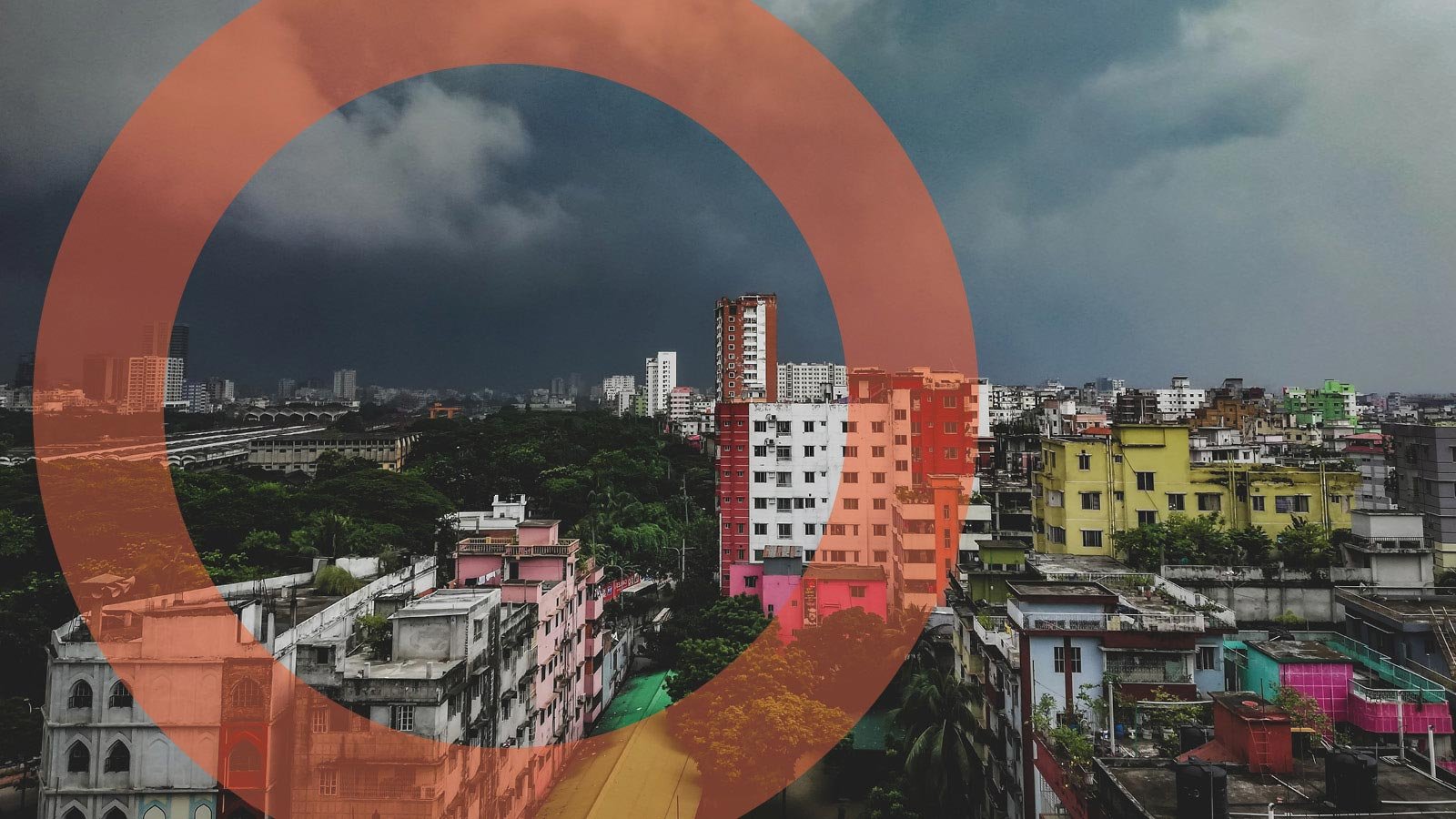
PUBLICATIONS CENTRE
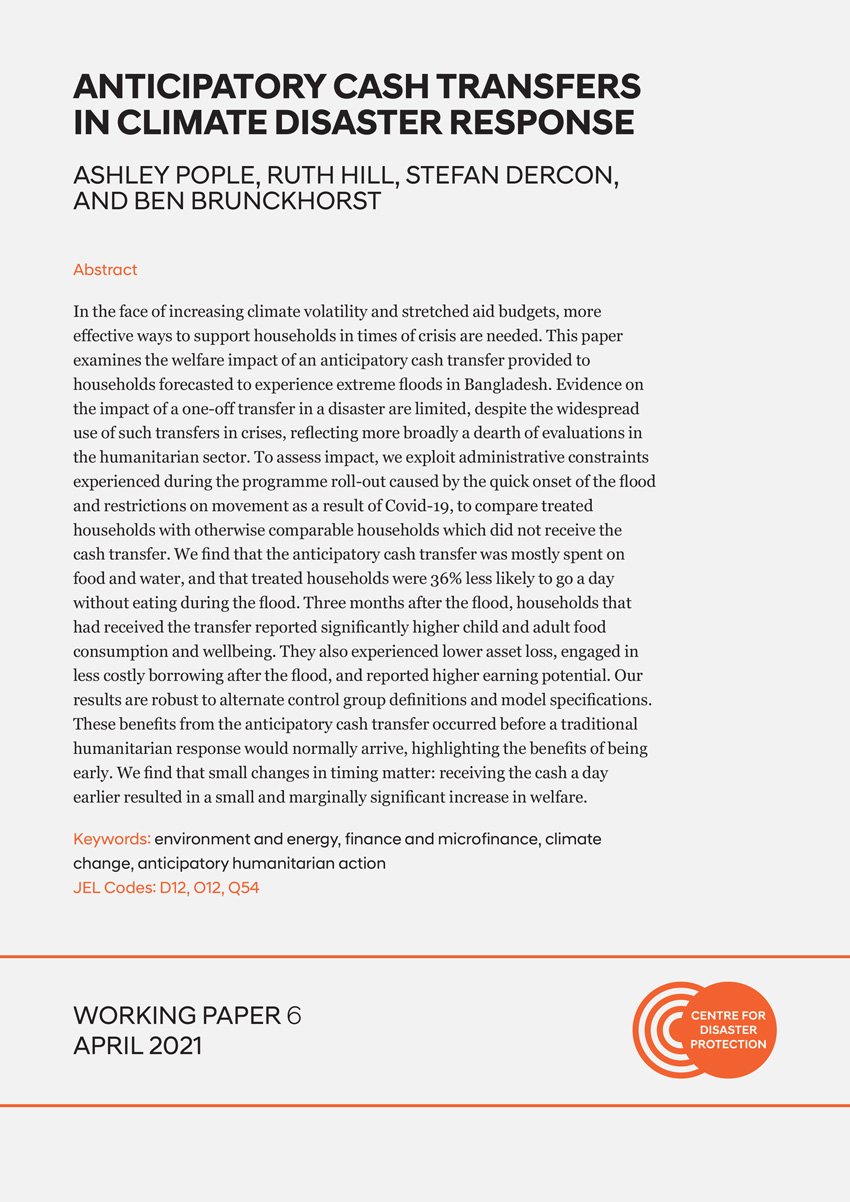
ANTICIPATORY CASH TRANSFERS IN CLIMATE DISASTER RESPONSE
In the face of increasing climate volatility and stretched aid budgets, more effective ways to support households in times of crisis are needed. This paper examines the welfare impact of an anticipatory cash transfer provided to households forecasted to experience extreme floods in Bangladesh.
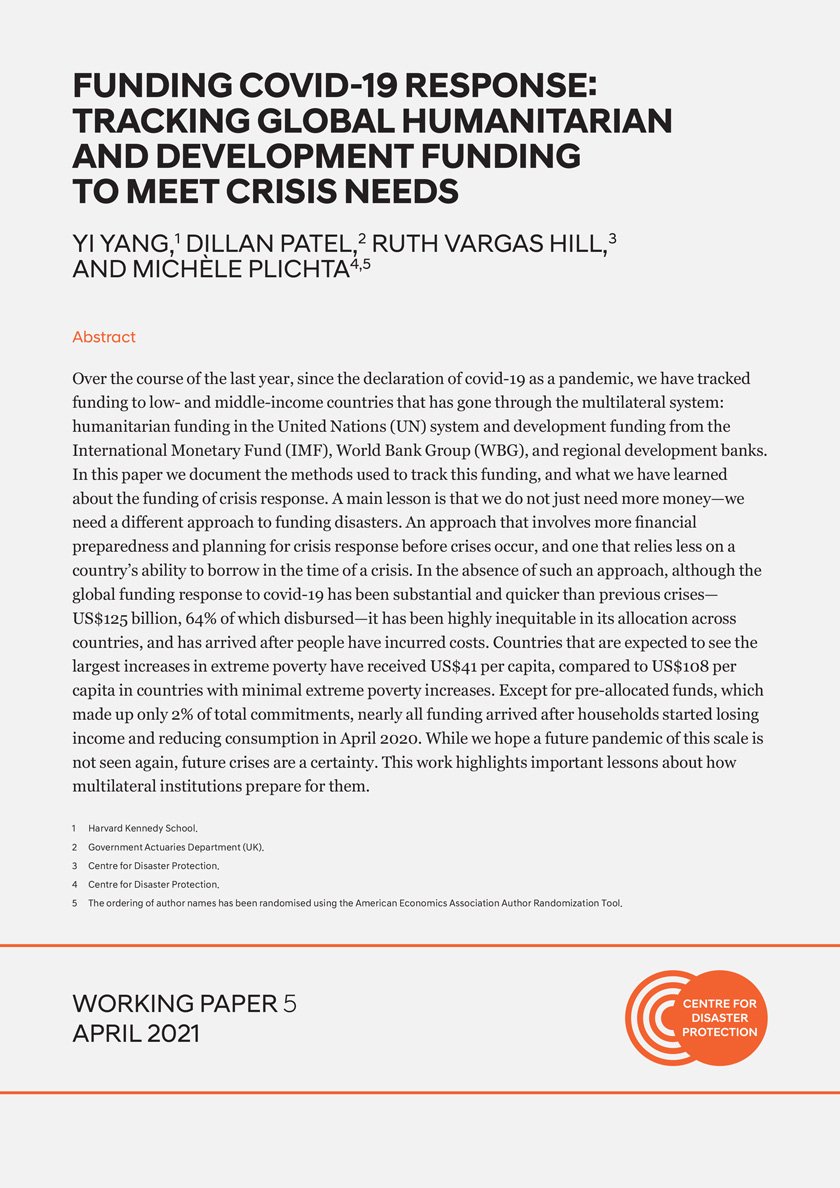
FUNDING COVID-19 RESPONSE: TRACKING HUMANITARIAN AND DEVELOPMENT FUNDING TO MEET CRISIS NEEDS
For the past year, the Centre has tracked funding via the multilateral system intended to support the covid-19 response in low- and middle-income countries. This research has highlighted the flaws in the current system which is not always able to support response where need is greatest.

ACCOUNTABILITY IN DISASTER RISK FINANCING
As disaster risk financing (DRF) matures, it needs to better understand and implement accountability—particularly towards the at-risk people it seeks to benefit. There is growing awareness of this, but application remains nascent. This working paper presents a framework for understanding accountability in this context, as well as an overview of implementation in order to stimulate and inform progress.
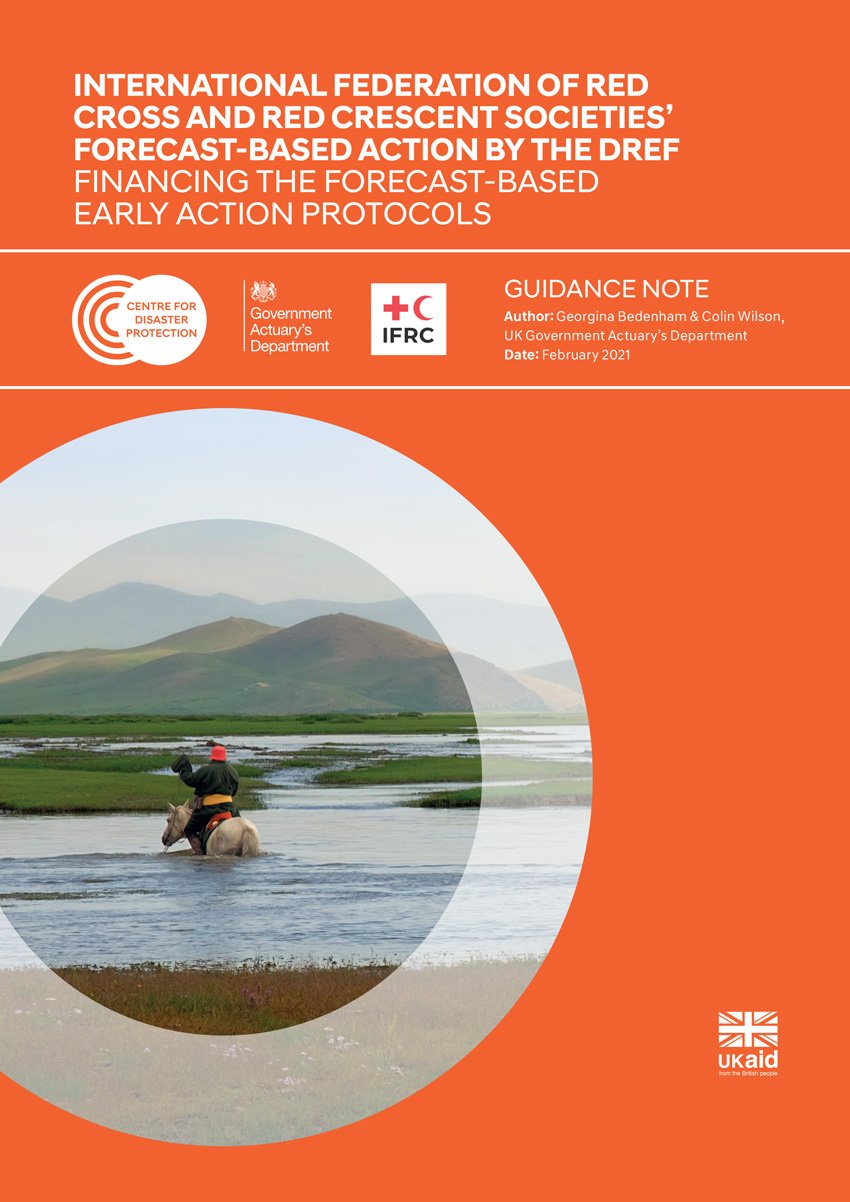
INTERNATIONAL FEDERATION OF RED CROSS AND RED CRESCENT SOCIETIES’ FORECAST-BASED ACTION BY THE DREF
It is well known that in the event of a disaster, the speed of response is key. It is increasingly recognised that precommitment, readiness preparations, and forecast-based action can dramatically improve effectiveness. This report examines the alternative options that may be available to the International Federation of Red Cross and Red Crescent Societies (IFRC) when funding its Early Action Protocols (EAPs) through the Forecast-based Action by the DREF (FbA by the DREF)

COVID-19 AND INEQUALITY: A REVIEW OF THE EVIDENCE ON LIKELY IMPACT AND POLICY OPTIONS
This discussion paper examines the unequal impacts of the pandemic across different groups, the potential consequences for long-term inequality, and the implications of both of these for policy. Although realtime data on the impact of covid-19 in developing countries is currently scarce, early data from surveys during the crisis period, together with available evidence from past shocks, form a useful basis for the discussion.
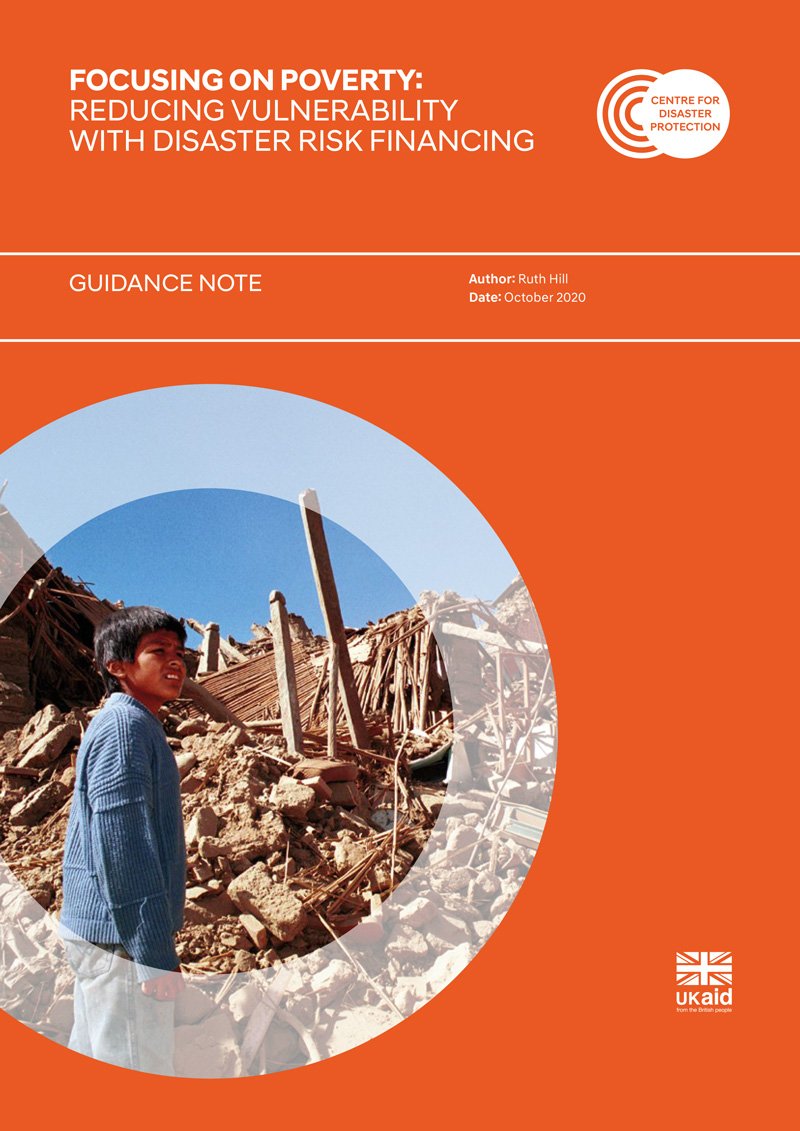
FOCUSING ON POVERTY: REDUCING VULNERABILITY WITH DISASTER RISK FINANCING
Disasters have the biggest impact on those that are least able to protect themselves from them: vulnerable people. In most cases the most vulnerable are also the poorest in a society. This guidance note sets out some questions that can be asked during programme design to help ensure that DRF is most directed to those who are least able to withstand shocks.
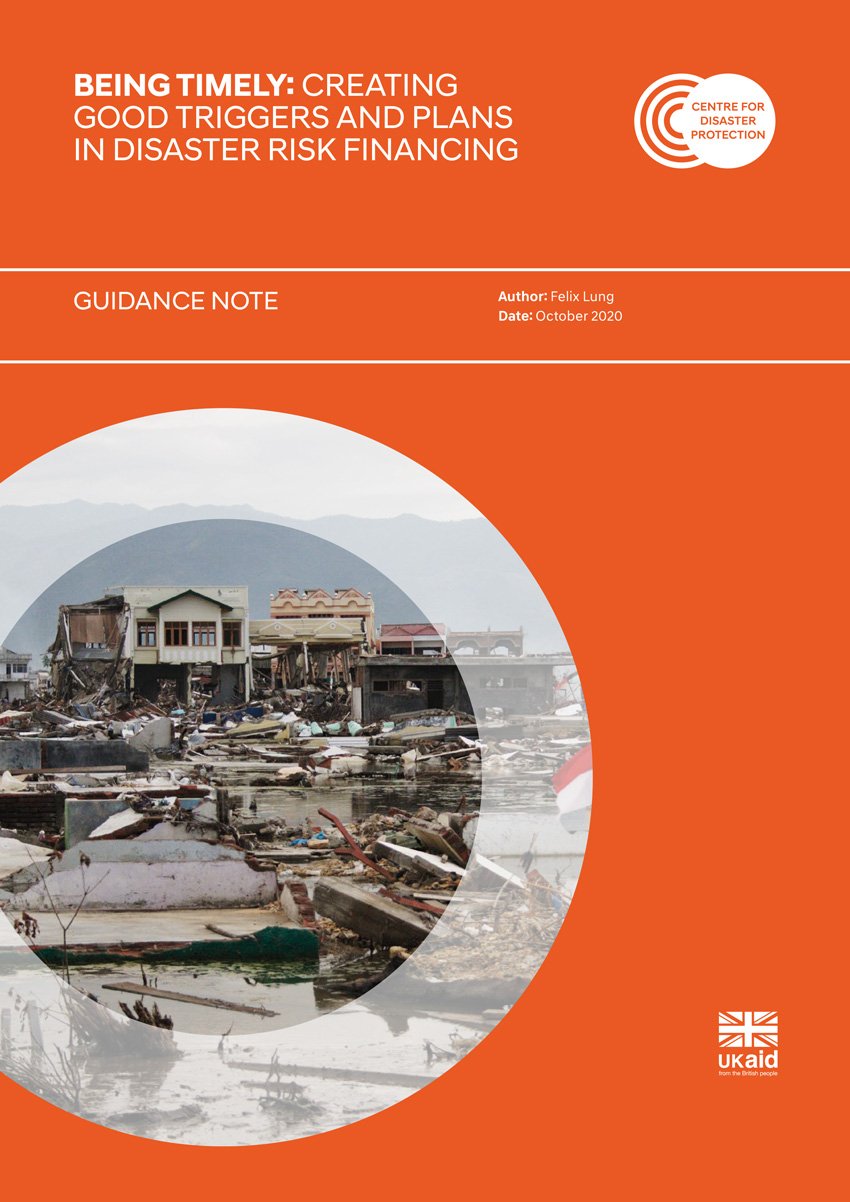
BEING TIMELY: CREATING GOOD TRIGGERS AND PLANS IN DISASTER RISK FINANCING
This guidance note offers practical guidance on contingency planning and triggers for preparing before a disaster strikes to support a faster, more coordinated, and ultimately, more effective response.
